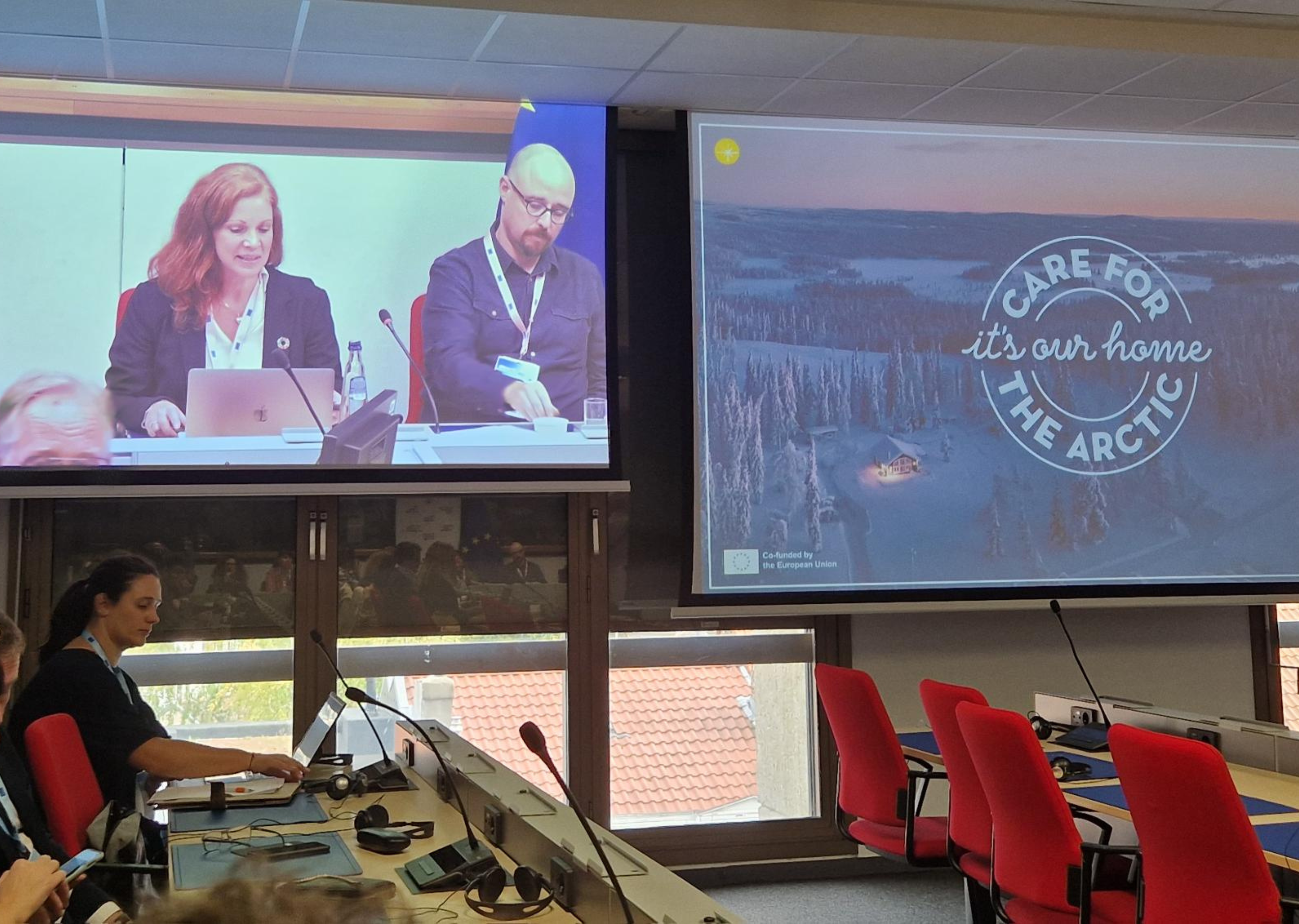
The Swedish Lapland participates at the European Week of Regions and Cities
-
10/10/2024
During the European Week of Regions and Cities, the European Commission hosted the workshop "Tourism regions addressing climate change risks", in which experts and representatives from various European regions showcased their innovative strategies and practical actions being taken to mitigate climate-related risks and strengthen resilience in tourism.
As climate change poses increasing challenges to the tourism sector, this workshop provided a timely platform for sharing insights, tools, and case studies on how local governments and organizations are adjusting to protect their economies.
Representing NECSTouR and the Swedish Lapland Visitors Board, Camila Bondareva, Head of Brand Communications, took the stage to present their Arctic Agenda, underscoring the urgency of climate action. The Swedish Lapland is also a key member of the NECSTouR network, as the latest host of the Annual General Meeting in Luleå under the topic "Care for the Arctic – It's our home", which reflected the need to protect the Arctic, one of the most vulnerable regions to climate change.
Bondareva emphasized that global warming is progressing two to three times faster than initially predicted and that only 7% of the global economic activity operates circularly and sustainably, a reminder of the need for systemic change. To finish up her intervention, Bondareva highlighted the importance of creating stronger connections between responsible travellers and businesses, underlining that conscious tourism requires collaborative efforts across sectors.
In addition to the Swedish Lapland Visitors Board, experts from the Auvergne-Rhône-Alpes Region in France and the Oeste Intermunicipal Community in Portugal also participated in the workshop, exposing their specific cases.
On the one hand, Emanuelle George, from the Auvergne-Rhône-Alpes Region, presented the difficulties the traditional tourism models in the area are currently facing, as their most popular offer, ski tourism, has witnessed firsthand the detrimental effects of climate change during the season by shortening it. George noted that ski resorts and other businesses are increasingly pressured to diversify their offerings and adjust their operational models to stay economically viable.
On the other hand, André Lopes, in representation of the Oeste Intermunicipal Community, addressed the significant challenges posed by coastal erosion, a growing concern in many coastal European regions. Lopes highlighted their work in using data-driven tools to foresee the impact of these climate events, allowing them to implement a more proactive plan and mitigate the risks in support of local communities and tourism.
The workshop not only highlighted how climate challenges vary across Europe but also showcased the concrete actions and strong commitment of European regions to build resilience. Events like this are crucial for fostering interregional collaboration, which is essential to safeguarding the future of Europe’s tourism industry in the face of climate change.